Cherry Wills first became interested in nutritional medicine through her own chronic health journey. After leaving the crazy world of food manufacture market research, she studied under Patrick Holford in London, and then her ‘mid-life adventure’ with her family brought her and her practice to Australia.
Her practice is the home of the award-winning weight loss program – Metabolic Balance® in Australia and she loves connecting other practitioners with the program.
Cherry’s nutritional therapy practice is in Cleveland in the beautiful Redlands, east of Brisbane. It is through this clinic that she offers personalised health and nutritional advice to help people be and feel their best, or simply put, to get their life back!
Tune in or read on below to learn how food and nutrition took Cherry Wills from chronically ill to becoming a metabolic balance expert.
T: Hi everyone and welcome to another episode of The Natupreneur Movement!
Today I’m excited to speak to an amazing practitioner who spent some time understanding how to create a system and structure and then brought it here to Australia to share with so many other practitioners. I’m excited to chat with Cherry Wills because last time I met her in person, she was so excited to tell me about all the practitioners she’d been connecting with. It got me wondering if I could get her on our podcast to talk to so many more!
Hey Cherry, how are you?
C: Hi, Tammy, I’m really well. Thank you. And thanks so much for having me.
T: I’m pumped to talk to you about what you do and how you got into it. And Metabolic Balance, as well! I know quite a few people and a lot of practitioners are talking about Metabolic Balance and it’s even been in the media a lot. So I’m really keen to chat with you about it.
But first, how did you become a practitioner or get into this line of work in the first place?
The Journey From Chronic Illness To Nutritionist
C: I think it’s quite a common story, to be honest. It was getting my own health on track. From childhood, I’ve had a lot of ill health. I had a lot of digestive issues all through childhood, eczema, chronic tiredness. I had exploratory surgery, abdominal surgery to see why I was having stomach aches. This is what they did when I was nine because I was having stomach aches the whole time. They actually opened me up and had a look inside and found nothing wrong. They took out a completely healthy appendix while they were there because they were doing me a great favour, obviously.
And yeah. That obviously didn’t resolve anything at all. I used to be very sleepy but I still functioned. I did really well at school I pushed through the whole time, even when I had glandular fever. So it was a lot of ongoing chronic health issues all the way through my 20s and into my 30s.
That was when I read a book by Patrick Holford, The Nutrition Bible. This was all in England.
That was a massive “Aha!” moment, so I then saw a nutritional therapist myself. And I went to Patrick Holford’s Institute of Optimum Nutrition that he’d set up in London and then extended it to a degree. It was that real “Aha!” moment and then I just haven’t looked back. My health just completely turned the corner!
Empathy And Compassion Springs From Personal Experience
Because of my own history, I feel like I have a very great understanding when I take health histories. When I’m in practice and talking to a client in front of me, I can see the pattern, I can hear myself. I can imagine myself being exactly where they are today. Because I am so convinced that if I hadn’t had that ‘Aha!’ moment, if I hadn’t realised this was the answer, I would have done exactly the same that people do.
You know, get on the conveyor belt of health without making any changes. And I would be 15 or 20 kilos heavier than I am, I’d probably have Hashimoto’s and I’d probably be on the road to early bowel cancer. I can see that path that could have been me. But because I’ve made that change, that’s why I get so excited. I’m so passionate when I’m with a client. What we can do is just amazing!
T: I love that! To have that level of empathy and compassion from personal experience.
The Beginning – Food And Drink Market Research
C: The other thing that I think brings more to my practice is my early career experience. My first actual career was in food and drink market research.
So I used to run the sensory profiling panels where we would work for the big food manufacturers. The agency I worked for worked with GlaxoSmithKline, Kraft Foods, McCain pizzas. We did all their market research and we used to do this incredible analysis. I was part of the team that ran the sensory profiling panels where we went to Reading University and had a team of professional tasters.
They would mark the food. And then we would do these big consumer studies of all the different types of food. And then we would match the data. So we had the professional tasting attributes. We had the consumers saying, ‘Yes, I like this, I like that.’ And then we would give the food companies algorithms that told them how to tweak their formulations to make them more desirable. Better mouthfeel, people will eat more of it, etc.
That’s like thousands and thousands of pounds or dollars, effort, and incredible minds that go into this whole procedure. When you get that understanding, you can really sit with incredible compassion when you hear a client say, “I opened a packet of biscuits and I can’t stop!”
I’m like, “Well, it’s no wonder!” You are not just that little person. There is all of this behind you that is driving you to do that. When I explain that to people, I tell them to give themselves a break! That is what food manufacturers want you to do. Two and a half years I did that. So yeah, I have a lot of compassion for every client.
T: Amazing! Your love of food obviously shines through, starting with a love of the science of food, obviously. And then the marketability of food.
How does that relate now, as a nutritionist?
How Market Research Lead To Nutrition
C: I really have a strong passion that we have to get the food right, first. I do love supplements. We know that we can have incredible changes. But what they are eating every day for breakfast, lunch, and dinner – or not! Some are skipping meals – drives so much of the problems we have. If you are not getting the food right at the very core, you just can’t take somebody to the next level. You can only take them so far. Or you can only go around the edges to help them feel a little bit better.
But if you really want to change things, I know that when you get the food really right it really is incredible what the human body then does.
I have an analogy that I use a lot with clients. Clients don’t always quite get it with food and themselves but they actually do get it when you talk about plants.
Treat Yourself Like You Would A Plant
So I’ll say to them, “Have you got a plant that you bought in a garden centre that you just thought, “That’s going to really brighten up the corner of my living room or wherever?” Then you bring it home and put it there and it looks fab.
But then you kind of neglect it for a bit. You:
- don’t quite water it when you know you should
- can’t quite get yourself to buy the right plant food
- know that the light isn’t quite right for it, but it’s okay. It’s not too bad.
And it slowly wilts. It slowly looks less than it’s supposed to be. And it’s not going to die on me because it’s not that bad. That’s how I see a lot of ill health. We are that plant that’s slightly neglected in the corner.
But as soon as you take that plant and decide to actually give it what it needs, you’re going to put it centre stage and make sure it gets the right light and food and water exactly how it wants it. Not just how any old plant wants it, how IT needs it.
Within hours, within days, you see that plant just flourish and bloom. Yeah?
That’s what I see when you get a person’s food right. When you get that personalised nutrition, you can almost see the body heave an enormous sigh of relief, “Thank goodness! We’ve got what we need at last.”
T: Like my poor Madonna Lily sitting over in the corner of my office. . .
C: I would like to say that I’m actually quite rubbish at keeping plants healthy. When I was living near my mom, my plants would go to her for a respite to recover from my neglect.
T: That’s funny! Thinking about the Patrick Holford days to how you practice now, what’s been one of the biggest changes you’ve made from when you first got into practice to now?
Why Helping With Weight Loss Turned Out To Be Right For Her
C: When I first got into practice, I actually remember saying when I was studying, “I don’t want to do weight loss. I don’t like weight loss, that’s not my thing.”
And very quickly, my very initial clients were all coming to me and saying, “I’d like to lose a bit of weight.” It might not have been the number one request or goal. It was two, three, or four, but it was there. And I very quickly realised that it’s hard actually to come up with a really effective strategy when somebody says that to you.
There are so many factors that could be playing a role. It’s very challenging to come up with a real personalised approach to get people results that are healthy and long term. Because I can’t say to somebody something that I don’t 100% believe is the right thing for them. I just can’t do it. It’s just so against my grain. And if I don’t know something, I say, “Look, I don’t know quite what’s going on here.” I can’t pretend, it’s just not in my nature.
So I needed something that was really going to give me that structure. Within a year of graduating. I heard about Metabolic Balance. As soon as I heard about Metabolic Balance, that gut feeling just totally kicked in. I didn’t actually even know much about the programme before I signed up and was at the training. I just realised it was completely food-first and scientific-based and would give me a personalised approach for my clients. And that was all I knew.
That was back in 2012. And I trained in London and I just was using it. At first, I started thinking, “Okay, I’m not sure about this. Is this it?”
Use Tools You Resonate With
T: We use those tools that we resonate with. My background is in pathology, so a tool that I definitely was used to using after a decade in pathology was a microscope. Then I went and did a training that involves dark field microscopy. There was a level of confidence that comes with a thing that resonates with you as a practitioner and that’s in alignment with you. And then actually going through the practice of practising with it.
C: I heard a quote by the artist Picasso earlier this year and it’s really stuck with me, I just love it so much.
“You learn the rules like a pro so you can bend them like an artist.”
For me, that is exactly what natural medicine is about. We need to be able to know our stuff. We need to know the intricacies, the nutrients, the body. But at the same time, you have to be able to really sit there, listen and connect with that person in front of you. And then bend those rules to really work for that person right in front of you.
Part of the whole healing comes from just that initial connection. From that person feeling listened to and understood. There have been studies on this that show that is the start of the healing process. We haven’t even done anything yet but that’s already kicked things into action.
T: Yeah, absolutely. So you studied abroad on this amazing tool overseas? How did you end up here in Australia?
The Mid-Life Adventure – Moving To Australia
C: It was actually because my husband and I were 39, coming up to 40. My husband had always had this dream of living in Australia or New Zealand. We’ve been together 25 years now. And for like 20 years, I was like, “Oh, no! I can’t do that. No.” And then we were in Italy, actually, enjoying the sun. Alec just said to me, “You know, if we lived somewhere warm we could have this all year round. We could go to Australia.” And I said, “Okay, then.” He just looked at me like, “Oh my god, really?”
Alec was in IT at the time when we got permanent residency. It was one of those things. When things are right at the right time, I really think things flow. We had no hiccups. We sold the house. Our kids were nine and eleven. It was a genuine midlife adventure thing.
We didn’t have any jobs or anything lined up when we arrived. Alec and I had a great first 5 or 6 months just getting to know. We didn’t have jobs, we lived off savings, the kids went to school. So I didn’t practice for about a year. I was very much settling in the kids and family. I’d probably say it was about 2015 when I really set up my practice in Australia.
The Only Metabolic Balance Nutritionist
At that time, Metabolic Balance was my absolute unique thing. There was virtually nobody in Australia doing it. It was here. Metabolic Balance is run by a licence for different countries. It’s a German thing and it’s in 35 countries but each country has a single person that controls the licence for that region.
When I arrived, I signed up with the licence holder who is a cardiovascular surgeon in Adelaide. He was very much in the hospital setting, he was a practising surgeon. I’m really not sure how he came to know about it and take on the original licence. But because there was a real conflict of interest being in the medical community, I think he couldn’t really promote a commercial programme, which is essentially what it is. So very little was done with it. He did virtually no training, there was no marketing. So even though it kind of was here in 2012, I would say nothing happened for a good five years.
When I turned up here, I just told people about it and used it. And that is what built my practice. I had no contacts, I knew nobody and it was a real massive learning curve even to find out about Australian supplements, at that time. So I had this programme that was unique and my business just blossomed through word of mouth. When you have something that works, people want to come to see. So, people were travelling from the other side of Brisbane up from New South Wales to see me because of this.
Then in 2017, I very much remember getting the email that said the surgeon was relinquishing the licence. He and his wife decided they didn’t want to do it anymore. I remember I was like, “Oh my God!”
Moving To The Next Level
Anyway, to cut a long story short, I got in touch with Germany, wrenched everything here and then took on licence myself in 2017. That was really when I made that decision. I really want to get this programme out as far wide in Australia as I can possibly can. Because that’s the way more people can be helped.
I have such a passion for the changes that you can see in your clients with it. It’s that “Aha!” moment, the transition for people that nothing works for them. When you get their food right, then it’s it really is a transition moment, sort of a watershed moment. My goal since that time has really been to office and support practitioners in the way I would love to have been supported. To get the programme into their clinics and be able to use it.
T: That was when I met you at a conference earlier this year. You were just so passionate about all these amazing practitioners getting on.
C: I love it. I love the community!
T: Now I can see this link with your background and food and I can see how it all just falls in place and resonates.
One of my favourite things about talking to practitioners on this podcast and in real life, of course, is finding the things that are in alignment with them. I sometimes get the sense that nutritionists, in particular, feel a little bit left out of the natural health realm here in Australia. Of course, we’ve got the dietitian medical model. Then we’ve got the naturopaths who we talk a lot to. But nutritionists do tend to not quite know where they stand because we have that combination in our supplements. We have the dietitians in the medical model.
So it’s really cool to see a nutritionist helping other nutritionists through food, through a programme.
Stay In Alignment With Your ‘Thing’
C: Absolutely. And I definitely agree with what you said there. In England, natural medicine is predominantly, I would say 90% nutritional therapy. Very few naturopaths in England. Whereas here, it’s completely flipped the other way. When I first arrived here, I remember thinking to myself that I might have to get another degree and do naturopathy.
But I knew what I knew. I love what I do. I think there’s so much fantastic stuff in naturopathy, as well.
T: You have to be in alignment with your thing!
C: I feel really very grounded in what I do. I know the results I can get for my clients now. I do firmly believe that we attract the clients that work well with us, as well. When you are very grounded in where you’re at and what you do, I think you can really get that resonance and congruity going. And that means that you get the clients that need to see you
That’s why I think getting together with other local practitioners is a good idea. We’re not in competition with anybody! That’s my personal opinion.
T: Oh, I couldn’t agree more. There is so much uniqueness to all these unique people that come after you.
The Advantages Of Welcoming Competition
C: Yeah. I do Metabolic Balance. And I have trained two practitioners in the same suburb as me. One practitioner has actually now moved down the Gold Coast. But when she got in touch she was practising within five minutes of my office and I was like, “Fantastic! I would love to have you on board.” Because we need more. There need to be more practitioners that can do this. In the same way, Jane is in the neighbouring suburb to me. I love having her now because we can really support each other.
T: There’s support. And there are people who you know are not a good fit for you.
C: That’s it, exactly. I have sent many times to Jane because I just think, “You need to see Jane!” There are so many people to go.
T: That’s the thing about the chronicity of disease and unwellness. There are so many people that need so much more really good quality education around their food and lifestyle choices. It’s great to come from a very unique individual that resonates with them. Oh, I love your take on that.
So, the theme of NatEx in 2020 is Love Your Work, Love Your Life and Love Yourself. We’ve had a great conversation about what you love about your work.
What do you love about your life, at the moment?
C: I do love that I can make the decision about what I do, who I see, when I see them, planning my own calendar.
You know, I recently just in October had a 20-day trip going to the States, England, and Turkey. And I could totally do that because I scheduled it in. I was representing MB International at the Personalised Lifestyle Medicine Institute conference in Seattle, where I got to see and hear incredible speakers. It was just such a fantastic place to be. And I got to go to Istanbul, as well. That was awesome, as well!
I like the fact that I live in an awesome country. The beautiful sunshine that we have. I’ve been here six years now and I still appreciate the gorgeousness of what we have here and what I have here.
T: Our life and our lifestyle here in Australia – we’re very, very blessed.
C: Yes, I’m thankful for that. I’m really thankful for the opportunities I’ve had and just the community. And I think it’s a really exciting time for natural medicine. There is a beautiful change and acknowledgement about personalised medicine, personalised nutrition, that jaded approach to just that pill. People don’t want to be taking pills for everything, anymore. They’re realising they do need to change. Maybe I’m just in my own little gilded world of people who want my help, but I like being there. I know that there is still a massive amount of progress to go, but I think we are making beautiful progress.
T: Yeah, I agree completely with all of that.
The final one is, Love Yourself. We’ve got a bit of a rampant epidemic of burnout in our profession. I’m really adamant that we actually bring this out into the conversation in our world as professionals and practitioners. That we share our tips. Because I haven’t come across very many practitioners who haven’t gone through a period of what they would call burnout. They have done things for themselves and I think it really needs to be spoken about.
Have you ever experienced burnout and what did you do to love yourself?
C: I would actually say because I came from being really quite ill before I even got into nutrition, I’ve always known that my adrenals are not that robust. I know I would have a strong susceptibility to burnout. So I’ve always had that awareness. Hence, I have actually always very much kept my appointments realistic.
Just because people are phoning you up does not mean you have to fit them in back to back appointments.
T: So true! A gold nugget, right there.
C: I should clarify, I probably have done it. But I learned quite quickly that I don’t like it. I can’t give myself or my clients what they need. So I really tried to have at least a 20-minute gap between appointments with a maximum of maybe seven or eight appointments a day. I will not go above that. And I always schedule in a minimum, 45-minute lunch.
T: I know a lot of practitioners do that. Especially when I had a huge caseload, I was seeing just too many people. And I wasn’t being a benefit to them or myself. I was skipping lunch four out of the five days of the week.
Put Your Food First
C: It just doesn’t work. It never works. The thing is, I spend a lot of time talking to people about needing to put your food first. You need to put this as a priority of your day. If I’m not doing that myself, can I possibly be congruent? People definitely pick up when you are not being congruent and when you’re not really following your own advice.
Don’t get me wrong – I definitely do not have any kind of perfect diet. I love a glass of wine when I want a glass of wine, I’ll have a little biscuit when I want a biscuit. But I know the structure that works for me, I know how to do it. I know how to manage my food and put it as a priority of my day. That protects my health to a certain degree.
At the moment, I have a big workload on but I spend a lot of time just trying to be as kind as possible to myself. I am doing the absolute best I can right now. Yes, I could do another 20 hours work in a week. Yes, there’s always more I can do. But you know what? It will come naturally. I can’t do more than I’m doing because I know I would not last for more than a few weeks before I couldn’t do anything. So I think that’s the biggest thing.
Don’t Try To Be All Things To Everyone
This is my own complete personal opinion. At the moment, it seems to me there is a lot of pressure for practitioners to be able to understand and work everything out themselves. As in, you’re supposed to be an expert in:
- all different biochemistry
- physiological fields
- the pathways
- be able to look at test results and be those researchers that can come up with an incredible understanding and diagnosis almost
I find that really quite crazy. Because at the end of the day, what you need to be able to do is sit with an individual and just really help them change their whole lifestyle and diet. In the past, I used to try to talk about pathways, MTHFR or various other things that might be going on and would actually see their eyes glaze over. They’re like, “Okay, I’m not really following you, but what do I do? Tell me what to do?”
Actually, this is where I come from. As practitioners, we just need to be able to give people really solid, sound, personalised advice. And we need to find the tools in our practice that really help us do that. Where we don’t have to spend hours and hours looking over test results, trying to come up with something, feeling that pressure. Because at the end of the day, you just want to be able to sit, really connect, and make a difference to that person in front of you.
T: Yeah, absolutely. Hear, hear! Permission granted.
Love that! I hear you and I hear it all the time from practitioners that I mentor how overwhelming everything can be, to want to learn all of the things and know all.
Take The Pressure Off Yourself
C: It’s actually about taking the pressure off yourself to be this perfect practitioner. A lot of the time we think we’ve got to do the next CPE thing. We’ve got to do this course. Now I just need to do that. I can’t see clients yet because I haven’t got that. Really, you’ve just got to start. If you’re going to have the compassion. You’ve got to listen. And then you have to be able to just read between the lines and connect. And you can have an enormous change just in that.
T: I couldn’t agree more. I’ve got goosebumps thinking about it.
So this has been an awesome conversation. Thank you so very, very much for sharing your gold nuggets today, Cherry! It’s been amazing. I’m really excited to have you coming to NatEx
C: I’m so excited, as well. It’s my first NatEx – I’ve not been to one before but I hear wonderful things about it
T: It’s gonna be so much fun and you’re gonna be able to connect with all these practitioners!
C: I’m really looking forward to it will be fantastic.
T: So thank you!
Take Action
If you are listening and wanting to learn more about Metabolic Balance, you can connect with Cherry Wills at LifeZest.Health.
And please share this with any other practitioner you know who might need to hear this advice, as well. If you got a real “Aha!” moment out of this episode or would like to explore any of these ideas, please come join the community in the free Natupreneur Hub.

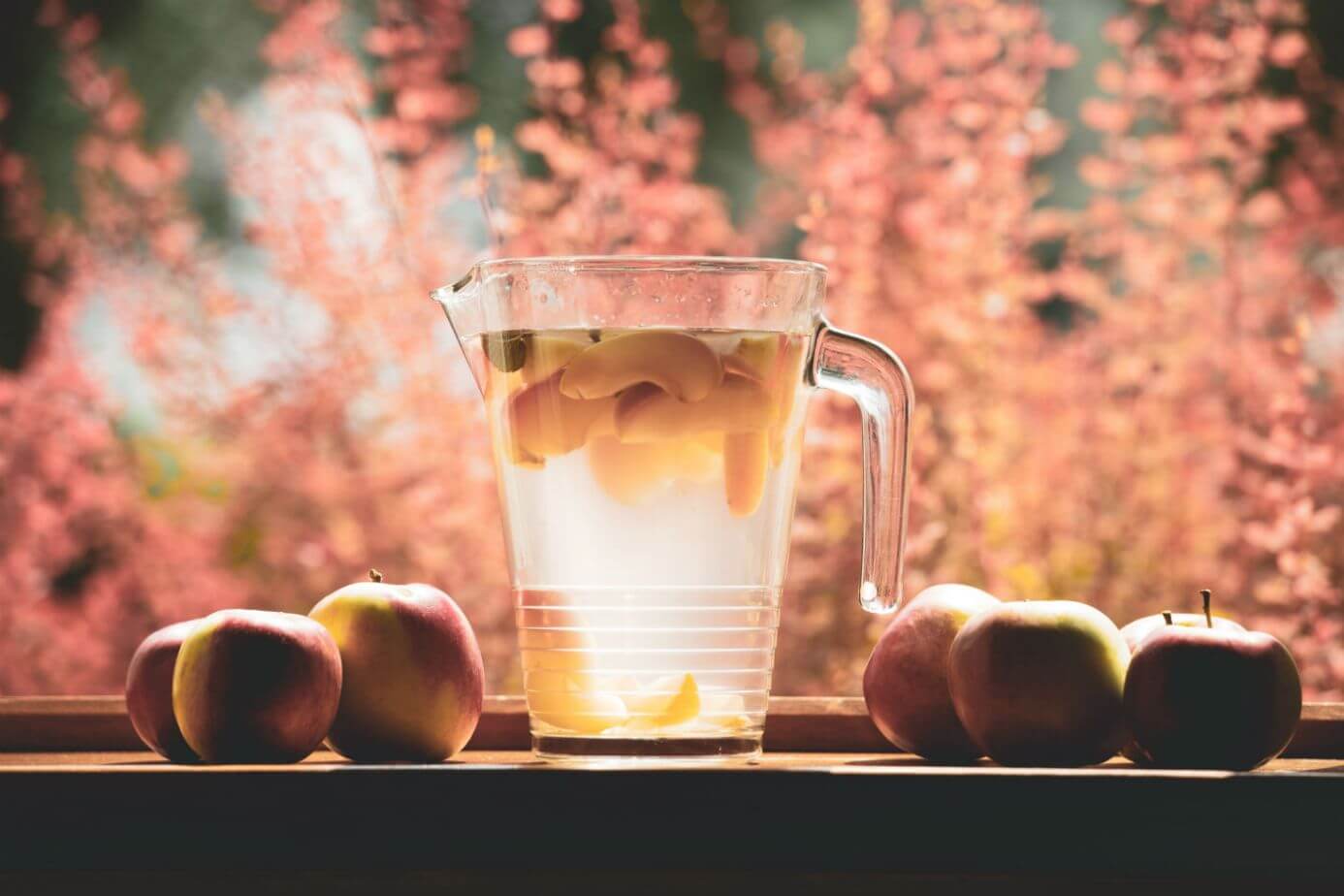
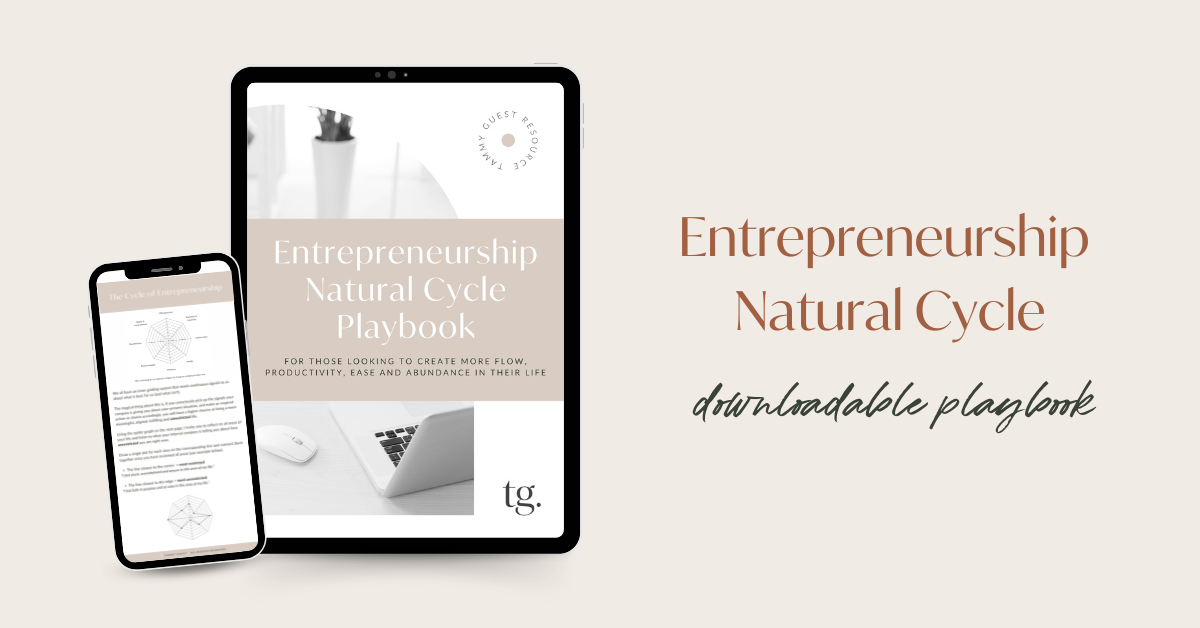
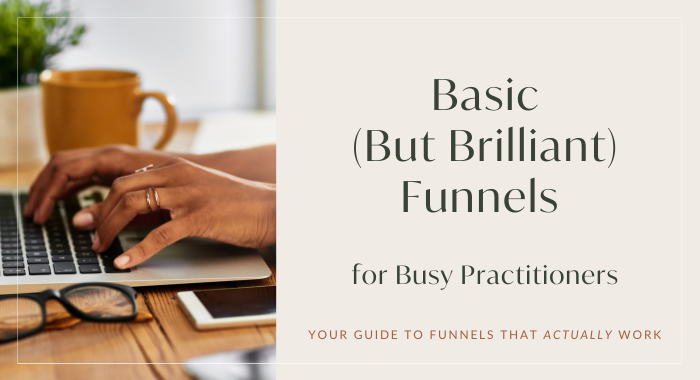

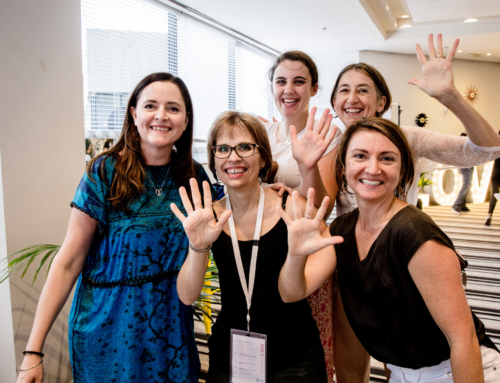



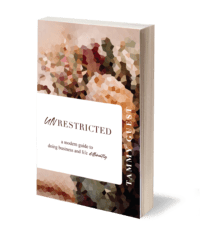
Leave A Comment